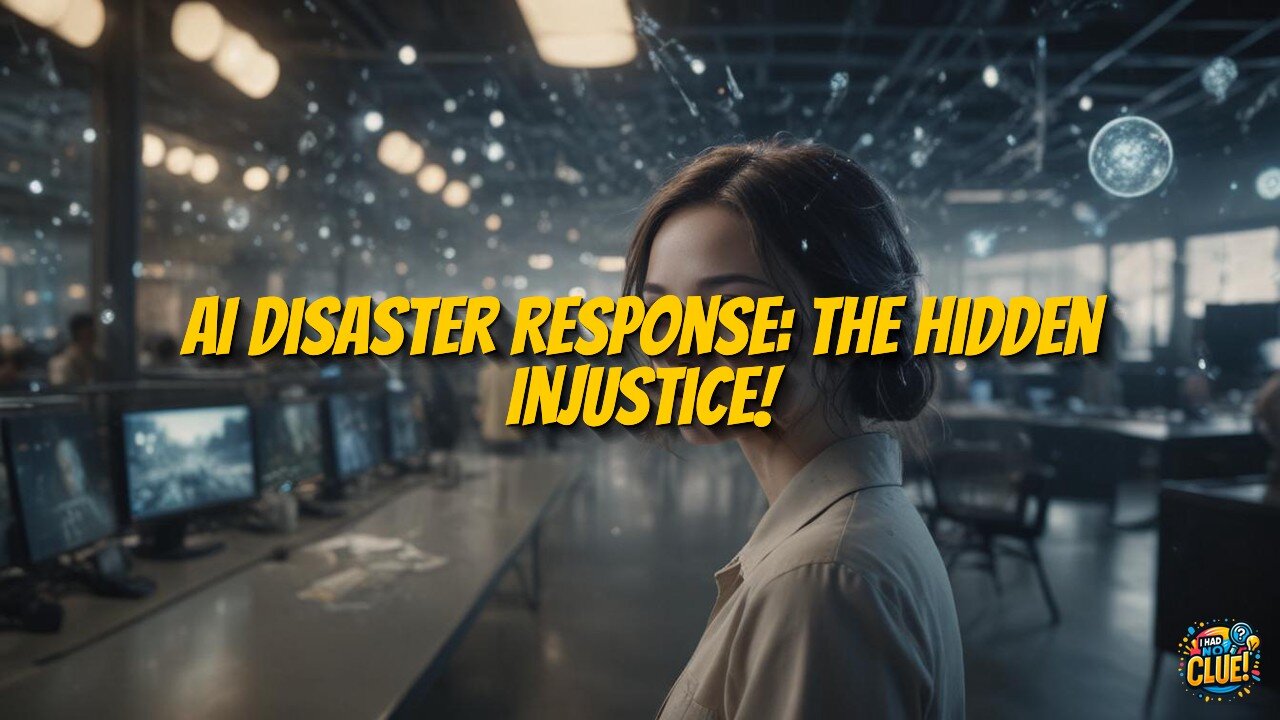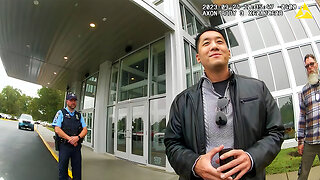Premium Only Content

Addressing Inequity in AI-Powered Disaster Response
AI-powered disaster response systems, while promising greater efficiency, systematically underserve communities with limited digital presence. Research by Dr. Amara Okafor reveals that areas with poor digital infrastructure received hurricane assistance an average of 37 hours later than digitally-connected regions with similar damage. These "data deserts" generate approximately 1/14th the digital data of urban centers during crises, creating a feedback loop where communities with less digital visibility receive delayed aid. The problem extends beyond technical limitations to include algorithmic bias that encodes Western assumptions about communication and help-seeking behaviors. For example, during Hurricane Beryl in 2024, communities actively posting on social media received assessment teams within hours, while equally damaged areas with limited digital presence waited days. Researchers are developing solutions like the Red Cross's "Equitable Response Initiative" and Carnegie Mellon's "EQUI-AID" framework, which deliberately correct for these biases. The challenge raises more profound questions about humanitarian technology ethics, with experts arguing that disaster algorithms must be co-designed with affected communities rather than merely deployed to them.
-
 21:31
21:31
Clownfish TV
19 hours agoOG YouTube is Officially ENDING! Employees Offered BUYOUTS?! | Clownfish TV
9579 -
 5:54
5:54
Gun Owners Of America
16 hours agoThe Virginia Election Could Shift The Balance of Power Nationwide
3912 -
 LIVE
LIVE
BEK TV
22 hours agoTrent Loos in the Morning - 10/31/2025
187 watching -
 LIVE
LIVE
The Bubba Army
21 hours agoIs Killing The New Trend??! - Bubba the Love Sponge® Show | 10/31/25
3,016 watching -
 2:25:16
2:25:16
Demons Row
11 hours ago $1.47 earnedEx Hells Angels MC President: Charles “Peewee”Goldsmith (Full Interview)
5.07K3 -
 3:35
3:35
Gamazda
10 hours ago $2.22 earnedThe Darkest Piano Theme?
6.83K16 -
 13:42
13:42
Nate The Lawyer
18 hours ago $2.36 earnedINSANE Judge REMOVED For Lying Under Oath, Insurance Fraud & Stolen Valor
6.53K14 -
 38:32
38:32
Code Blue Cam
1 day agoHow Police Stopped a Potential Church Massacre...
35.1K12 -
 24:26
24:26
Actual Justice Warrior
1 day agoWelfare Queens RAGE OUT Over Food Stamp Cuts
11.6K36 -
 3:05:11
3:05:11
Inverted World Live
10 hours agoThe Halloween Special with Drea De Matteo and Sam Tripoli | Ep. 133
358K16